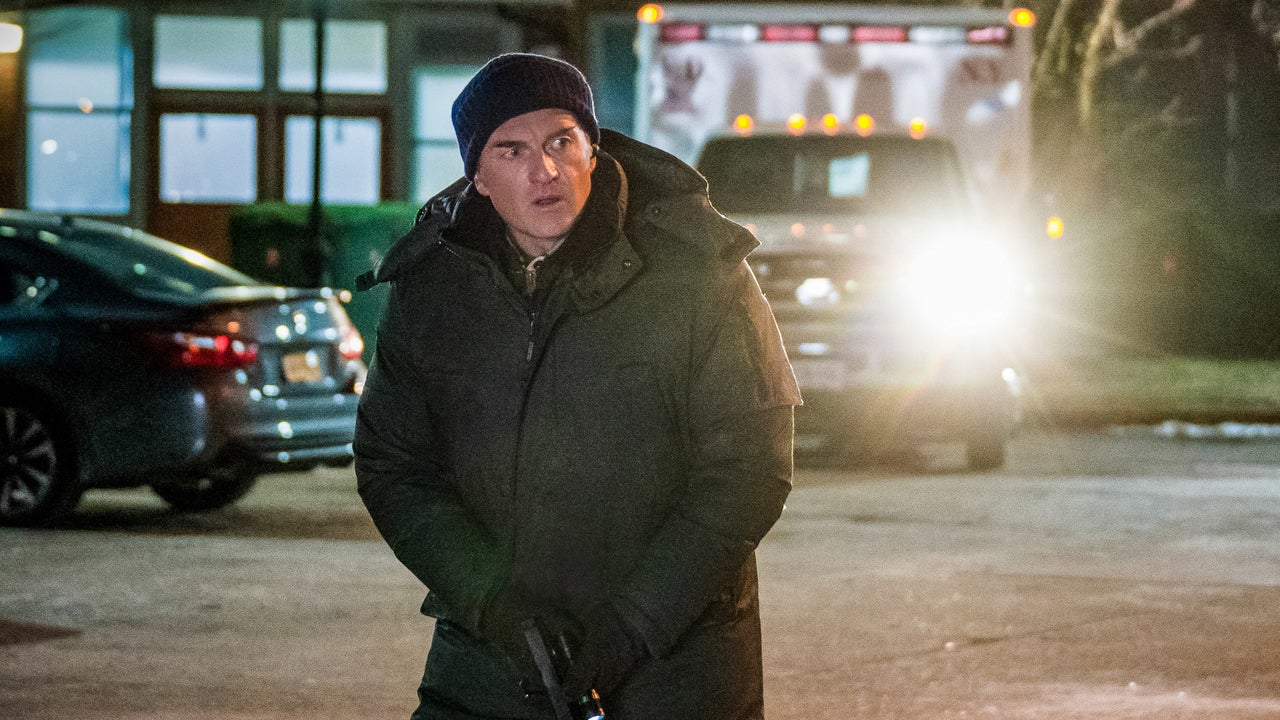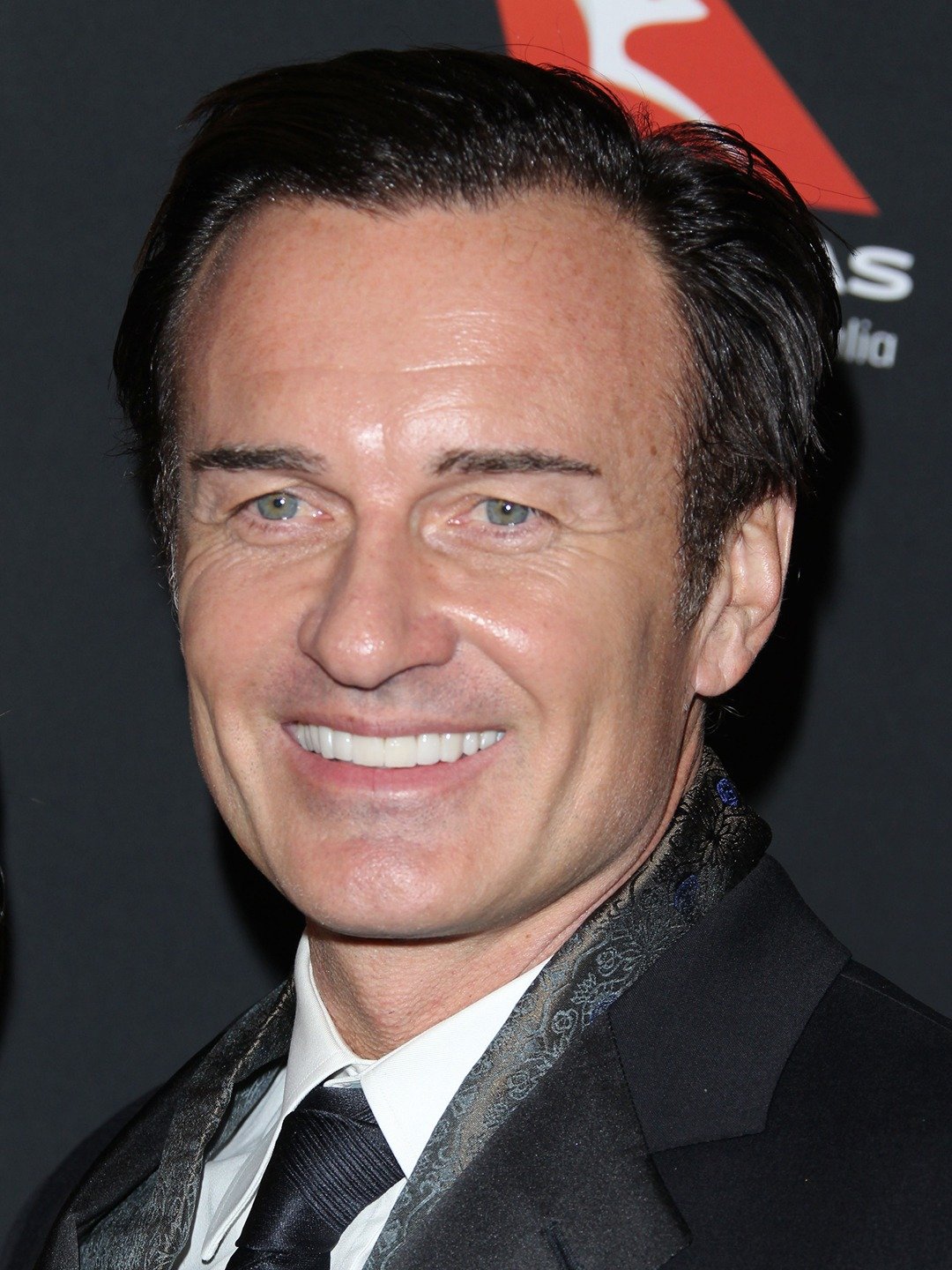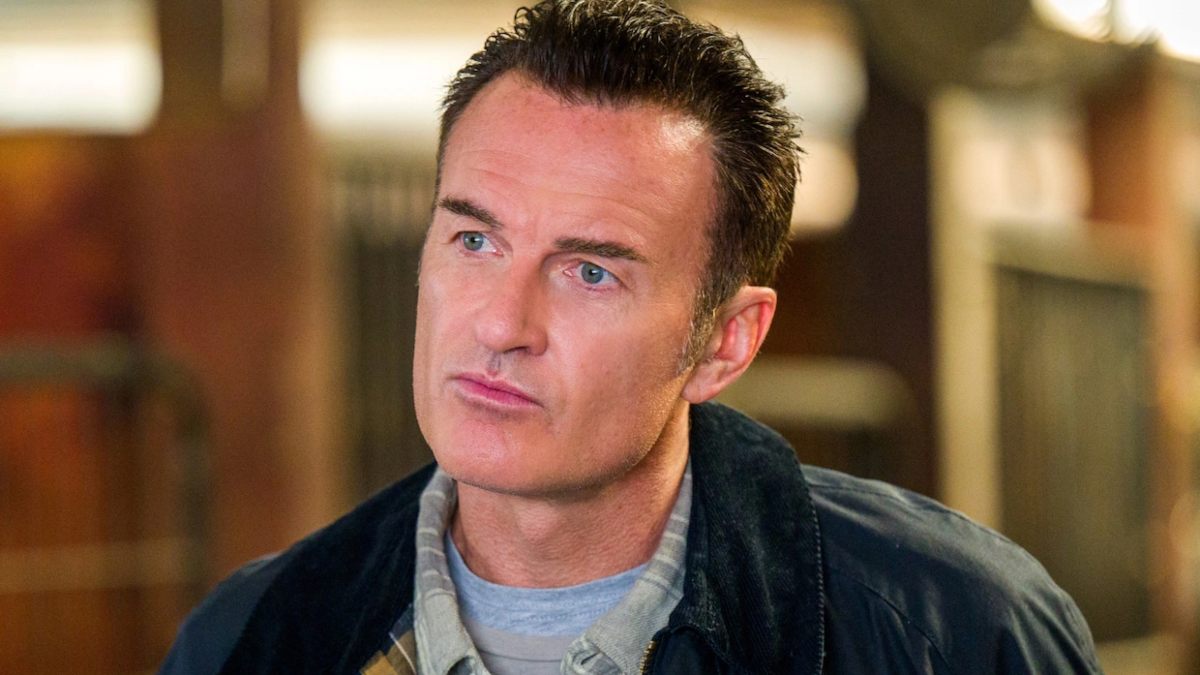Julian McMahon's Health Journey: Battling Multiple Illnesses
What is Julian McMahon's Illness? Julian McMahon is an Australian-American actor who has starred in numerous films and television shows. He is best known for his roles as Dr. Christian Troy on the TV series Nip/Tuck and FBI profiler Luke Alvez on the CBS crime drama Criminal Minds. In 2014, McMahon was diagnosed with basal cell carcinoma, a type of skin cancer. He has since undergone successful treatment and is now cancer-free.
Basal cell carcinoma is the most common type of skin cancer. It is caused by exposure to ultraviolet (UV) radiation from the sun or tanning beds. Basal cell carcinoma typically appears as a small, pearly bump on the skin. It can be pink, red, or brown in color. Basal cell carcinoma is usually slow-growing and does not spread to other parts of the body. However, if left untreated, it can grow larger and become disfiguring.
Treatment for basal cell carcinoma typically involves surgery to remove the tumor. In some cases, radiation therapy or chemotherapy may also be used. Most people with basal cell carcinoma are cured with treatment. However, it is important to have regular skin checks to detect and treat any new tumors that may develop.
Julian McMahon's diagnosis of basal cell carcinoma is a reminder of the importance of sun safety. It is important to protect your skin from the sun's harmful UV rays by wearing sunscreen, sunglasses, and protective clothing. You should also avoid tanning beds.
Julian McMahon's Illness
Australian-American actor Julian McMahon is best known for his roles as Dr. Christian Troy on the TV series Nip/Tuck and FBI profiler Luke Alvez on the CBS crime drama Criminal Minds. In 2014, McMahon was diagnosed with basal cell carcinoma, a type of skin cancer.
- Type of cancer: basal cell carcinoma
- Cause: exposure to ultraviolet (UV) radiation
- Symptoms: small, pearly bump on the skin
- Treatment: surgery to remove the tumor
- Prognosis: most people with basal cell carcinoma are cured with treatment
- Prevention: protect your skin from the sun's harmful UV rays by wearing sunscreen, sunglasses, and protective clothing
McMahon's diagnosis of basal cell carcinoma is a reminder of the importance of sun safety. It is important to protect your skin from the sun's harmful UV rays by wearing sunscreen, sunglasses, and protective clothing. You should also avoid tanning beds.
| Name | Date of birth | Birth Place | Alma maters | Occupation |
|---|---|---|---|---|
| Julian McMahon | July 27, 1968 | Sydney, Australia | University of Sydney | Australian-American actor |
Type of cancer
Basal cell carcinoma (BCC) is the most common type of skin cancer. It is a slow-growing cancer that typically appears on sun-exposed areas of the skin, such as the face, neck, arms, and legs. BCC is caused by damage to the DNA of skin cells, which can be caused by exposure to ultraviolet (UV) radiation from the sun or tanning beds.
BCC is a very treatable cancer, and most people with BCC are cured with surgery. However, it is important to have BCC treated as soon as possible to prevent it from growing larger and becoming more difficult to treat.
Julian McMahon was diagnosed with BCC in 2014. He underwent successful surgery to remove the tumor and is now cancer-free.
BCC is a common type of skin cancer, but it is important to remember that it is very treatable. If you have a suspicious-looking skin lesion, see a doctor right away to have it checked out.
Cause
Exposure to ultraviolet (UV) radiation is the primary cause of basal cell carcinoma (BCC), the type of skin cancer that Julian McMahon was diagnosed with in 2014. UV radiation can come from the sun or from tanning beds.
UV radiation damages the DNA in skin cells, which can lead to the development of BCC. BCC is a slow-growing cancer that typically appears on sun-exposed areas of the skin, such as the face, neck, arms, and legs.
It is important to protect your skin from UV radiation to reduce your risk of developing BCC. You can do this by:
- Wearing sunscreen with an SPF of 30 or higher
- Wearing sunglasses
- Wearing protective clothing
- Avoiding tanning beds
If you have a suspicious-looking skin lesion, see a doctor right away to have it checked out.
Symptoms
A small, pearly bump on the skin is a common symptom of basal cell carcinoma (BCC), the type of skin cancer that Julian McMahon was diagnosed with in 2014. BCC is a slow-growing cancer that typically appears on sun-exposed areas of the skin, such as the face, neck, arms, and legs.
The pearly bump is caused by the growth of abnormal skin cells. These cells can form a small, round tumor that is typically less than 1 cm in diameter. The tumor may be pink, red, or brown in color. It may also be slightly raised or flat.
BCC is a very treatable cancer, and most people with BCC are cured with surgery. However, it is important to have BCC treated as soon as possible to prevent it from growing larger and becoming more difficult to treat.
If you have a small, pearly bump on your skin, it is important to see a doctor right away to have it checked out. BCC is a very common type of skin cancer, but it is also very treatable. Early diagnosis and treatment can help to ensure a successful outcome.
Treatment
Surgery to remove the tumor is the most common treatment for basal cell carcinoma (BCC), the type of skin cancer that Julian McMahon was diagnosed with in 2014. BCC is a slow-growing cancer that typically appears on sun-exposed areas of the skin, such as the face, neck, arms, and legs.
- Mohs surgery is a specialized type of surgery that is used to treat BCC. Mohs surgery involves removing the tumor layer by layer, while examining each layer under a microscope to ensure that all of the cancer cells have been removed.
- Excisional surgery is another type of surgery that can be used to treat BCC. Excisional surgery involves removing the tumor and a small margin of surrounding healthy tissue.
- Curettage and electrodesiccation is a less common type of surgery that can be used to treat small BCC tumors. Curettage and electrodesiccation involves scraping away the tumor and then using an electrical current to destroy any remaining cancer cells.
The type of surgery that is used to treat BCC will depend on the size and location of the tumor. In most cases, surgery is successful in removing all of the cancer cells and preventing the BCC from recurring.
Prognosis
The prognosis for basal cell carcinoma (BCC) is generally good. Most people with BCC are cured with treatment. BCC is a slow-growing cancer that rarely spreads to other parts of the body. However, it is important to have BCC treated as soon as possible to prevent it from growing larger and becoming more difficult to treat.
Julian McMahon was diagnosed with BCC in 2014. He underwent successful surgery to remove the tumor and is now cancer-free. McMahon's experience is a reminder that BCC is a very treatable cancer. If you have a suspicious-looking skin lesion, see a doctor right away to have it checked out.
The prognosis for BCC is good because it is a very treatable cancer. However, it is important to remember that BCC can be disfiguring if it is not treated promptly. Therefore, it is important to protect your skin from the sun's harmful UV rays to reduce your risk of developing BCC.
Prevention
Protecting your skin from the sun's harmful UV rays is essential for preventing basal cell carcinoma (BCC), the type of skin cancer that Julian McMahon was diagnosed with in 2014. UV radiation from the sun can damage the DNA in skin cells, which can lead to the development of BCC.
- Sunscreen: Sunscreen is the most important tool for protecting your skin from the sun's harmful UV rays. Sunscreens work by absorbing or reflecting UV radiation, preventing it from reaching the skin. Choose a sunscreen with a broad-spectrum SPF of 30 or higher and apply it liberally to all exposed skin every two hours, or more often if you are swimming or sweating.
- Sunglasses: Sunglasses help to protect your eyes from the sun's UV rays. Choose sunglasses that block 100% of UV radiation and wear them whenever you are outdoors.
- Protective clothing: Protective clothing can help to protect your skin from the sun's UV rays. Wear long sleeves and pants when you are outdoors, and consider wearing a hat with a wide brim to protect your face and neck.
Protecting your skin from the sun's harmful UV rays is the best way to prevent BCC. By following these simple tips, you can reduce your risk of developing this type of skin cancer.
Frequently Asked Questions about Julian McMahon's Illness
Basal cell carcinoma (BCC) is the most common type of skin cancer. It is caused by exposure to ultraviolet (UV) radiation from the sun or tanning beds. BCC typically appears as a small, pearly bump on the skin. It can be pink, red, or brown in color. BCC is usually slow-growing and does not spread to other parts of the body. However, if left untreated, it can grow larger and become disfiguring.
Julian McMahon was diagnosed with BCC in 2014. He underwent successful surgery to remove the tumor and is now cancer-free. McMahon's experience is a reminder that BCC is a very treatable cancer. If you have a suspicious-looking skin lesion, see a doctor right away to have it checked out.
Question 1: What is the prognosis for BCC?
The prognosis for BCC is generally good. Most people with BCC are cured with treatment. BCC is a slow-growing cancer that rarely spreads to other parts of the body. However, it is important to have BCC treated as soon as possible to prevent it from growing larger and becoming more difficult to treat.
Question 2: What are the symptoms of BCC?
BCC typically appears as a small, pearly bump on the skin. It can be pink, red, or brown in color. BCC is usually slow-growing and does not spread to other parts of the body. However, if left untreated, it can grow larger and become disfiguring.
Question 3: What causes BCC?
BCC is caused by exposure to ultraviolet (UV) radiation from the sun or tanning beds. UV radiation damages the DNA in skin cells, which can lead to the development of BCC.
Question 4: How is BCC treated?
The most common treatment for BCC is surgery to remove the tumor. In some cases, radiation therapy or chemotherapy may also be used.
Question 5: How can I prevent BCC?
You can reduce your risk of developing BCC by protecting your skin from the sun's harmful UV rays. You can do this by wearing sunscreen, sunglasses, and protective clothing. You should also avoid tanning beds.
Question 6: Is BCC a serious cancer?
BCC is a very treatable cancer. However, it is important to have BCC treated as soon as possible to prevent it from growing larger and becoming more difficult to treat. If left untreated, BCC can become disfiguring.
Summary
BCC is a common type of skin cancer, but it is also very treatable. By following these simple tips, you can reduce your risk of developing BCC and protect your skin from the sun's harmful UV rays.
Transition to the next article section
If you have any further questions about BCC, please consult with your doctor.
Conclusion
Basal cell carcinoma (BCC) is the most common type of skin cancer. It is caused by exposure to ultraviolet (UV) radiation from the sun or tanning beds. BCC typically appears as a small, pearly bump on the skin. It can be pink, red, or brown in color. BCC is usually slow-growing and does not spread to other parts of the body. However, if left untreated, it can grow larger and become disfiguring.
Julian McMahon was diagnosed with BCC in 2014. He underwent successful surgery to remove the tumor and is now cancer-free. McMahon's experience is a reminder that BCC is a very treatable cancer. If you have a suspicious-looking skin lesion, see a doctor right away to have it checked out.
The most important thing you can do to prevent BCC is to protect your skin from the sun's harmful UV rays. You can do this by wearing sunscreen, sunglasses, and protective clothing. You should also avoid tanning beds.
BCC is a very treatable cancer, but it is important to have it treated as soon as possible to prevent it from growing larger and becoming more difficult to treat.



Detail Author:
- Name : Prof. Jazmin Zulauf III
- Username : gus49
- Email : goodwin.sammy@yahoo.com
- Birthdate : 1978-06-28
- Address : 978 Brakus Junction Suite 265 Lake Delilahborough, HI 20306-2541
- Phone : (689) 861-5345
- Company : Kilback-Kuphal
- Job : Municipal Fire Fighter
- Bio : Necessitatibus fugiat eos aut qui quia cum. Necessitatibus iure ut unde. Doloremque ut dolores id molestias quo eos. Culpa quasi nesciunt doloremque ullam velit temporibus nostrum.
Socials
twitter:
- url : https://twitter.com/elroy.sawayn
- username : elroy.sawayn
- bio : Non et rerum nihil perspiciatis. Qui molestiae quam consequatur non voluptatem dolorum velit. Aut voluptatem et ducimus.
- followers : 4051
- following : 2573
facebook:
- url : https://facebook.com/elroy_id
- username : elroy_id
- bio : Vero incidunt repudiandae labore sunt et possimus.
- followers : 3138
- following : 2827